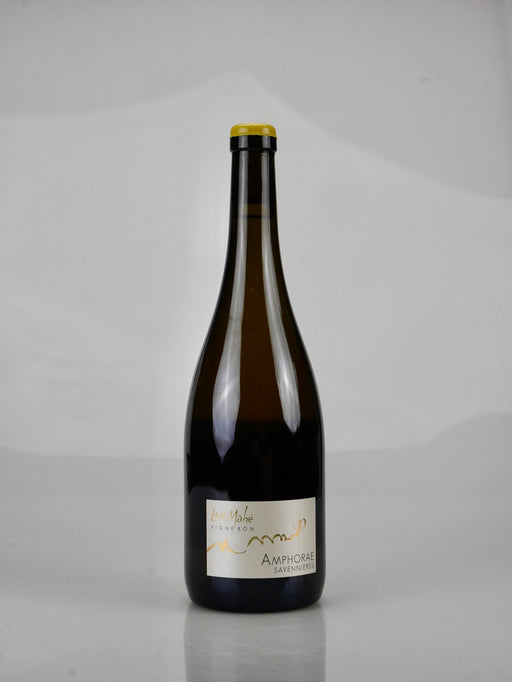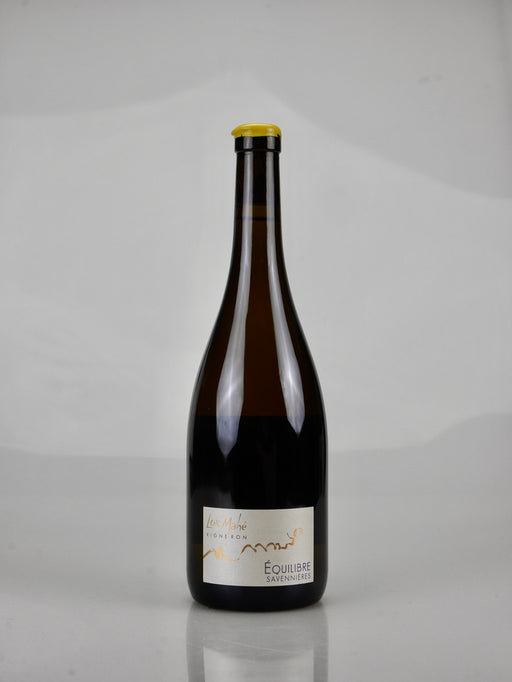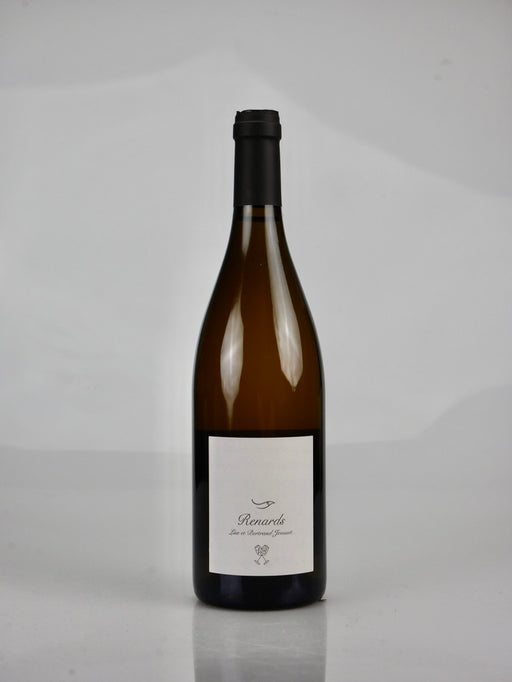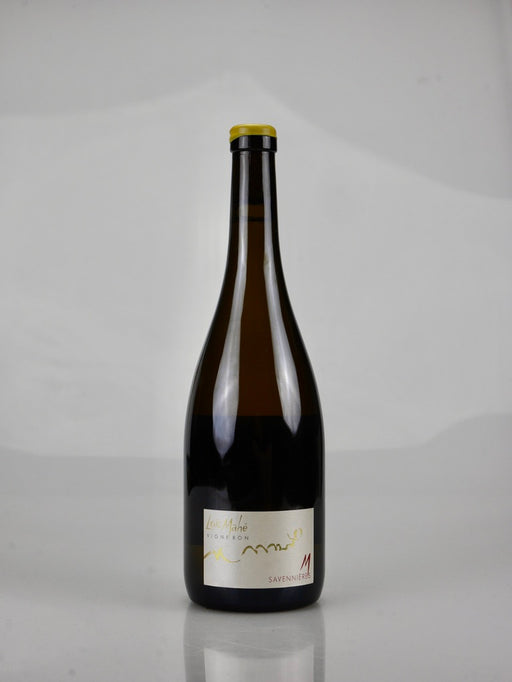
Jean-Pierre Robinot Charme 2022
'The Charme is a lovely Chenin Blanc that has been matured in old oak barrels. Old oak is used by the vast majority of natural winemakers because t...
View full details
'The Charme is a lovely Chenin Blanc that has been matured in old oak barrels. Old oak is used by the vast majority of natural winemakers because t...
View full details Sold out
Sold out
Nicolas Joly - Clos de la Bergerie 2023 - AOC Savennières - Roche Aux Moines The Joly family owns 2.77 hectares of the appellation (about 10%). Sin...
View full details
Hand-picked by successive sorting. After a slow direct pressing, the must is put directly into amphorae and sandstone eggs where fermentation tak...
View full details Sold out
Sold out
Harvested by hand by successive sorting. After a slow direct pressing, the must is put directly into oak barrels where the fermentations occur na...
View full details
'So many varieties – all from the Mosse estate! Bisou 2024 is 30% Grolleau Noir, 30% Grolleau Gris, 15% Cabernet Franc, 15% Côt and 15% Chenin Blan...
View full details
Early picked grapes, consisting of Chenin Blanc, Colombard & Sauvignon Blanc. Low ABV of 10.5% makes this a fantastic Magnum to kick off a hot ...
View full details
'The Bistrologie is a beautifully-crafted, classic expression of the Loire Valley’s favourite grape variety, namely Chenin Blanc. The Chenin Blanc ...
View full details Sold out
Sold out
Nicolas Joly - La Coulee de Serrant 2023 -AOC Coulee de Serrant Home to the Joly family for generations, the legendary 7-hectare clos has been aliv...
View full details Sold out
Sold out
Nicolas Joly - Les Vieux Clos 2023 - AOC Savennières The Joly family owns 5.5 acres of beautiful old walled vines, at the top of the slope facing e...
View full details Sale
Sale
Renards is a brilliant dry Montlouis and certainly one of the finest dry Chenins of the Loire, made from 60 to 80-year-old Chenin vines on clay so...
View full details
Harvested by sorting - limited yield (18-25 hl/ha). The pretty, ripe grapes from this specific sorting are destemmed by hand, taking care not to ...
View full detailsBiodynamic wine is made by farming all components of the vineyard as one whole entity, eliminating the use of chemicals and using natural materials and composts. Following the biodynamic calendar is another integral part of the process. Sometimes, these farming practices, from pruning to harvesting, are controlled by the biodynamic calendar. It breaks all the tasks associated with farming into four kinds of days: root days, flower days, fruit days, and leaf days. Each of these days has certain tasks associated with it that are reflective of Earth’s four classical elements (also on the harder-to-prove-scientifically end of things): Fruit days are meant for harvesting, leaf days for watering, root days for pruning. On flower days, the vineyard is left alone.
You may be familiar with organic wine, but have you ever considered buying biodynamic wine? The two systems both come under the natural wine umbrella, and while some confuse the two, they do present significant differences in their winemaking approach. In Australia and across the world, both wines are free from using chemical pesticides, herbicides, and fertilisers but biodynamic wine goes much further.
To understand how biodynamic wine becomes so, and before you decide to buy a bottle online, it’s important to understand what biodynamic farming is. This farming practice views a vineyard as one whole entity, with each portion of the vineyard contributing to the next. As well as considering the lunar calendar and astrology, natural materials, soils, and composts and a range of animals such as ducks or sheep are used to fertilize and sustain the area to help it become a fully functional self-sustaining system. Biodynamic farming is more about the entire lifeblood of vineyards, including plants, insects, and animals, rather than just the grapes.
One of the greatest things about biodynamic farming and the wine it produces is the commitment to sustainability its farmers follow. The practice aims to leave the land in good shape, or even improve the land for future generations to benefit from. With that in mind, by buying from our selection of Australian and International biodynamic wines online, you are not only doing something good for your tastebuds and collection, but also the environment.
Here at Moreish Wines we want all our online customers to find a bottle of biodynamic wine they love to enjoy with friends and family, so our price points are varied and affordable. Browse through our range and learn a little more about each brand – we hope you will love them as much as we do!
Copyright © 2026 Moreish Wines. | It is against the law to sell or supply alcohol to, or to obtain alcohol on behalf of, a person under the age of 18 years.
Liquor Licence: LIQP770016879
Empire Theme by Pixel Union. Powered by Shopify
